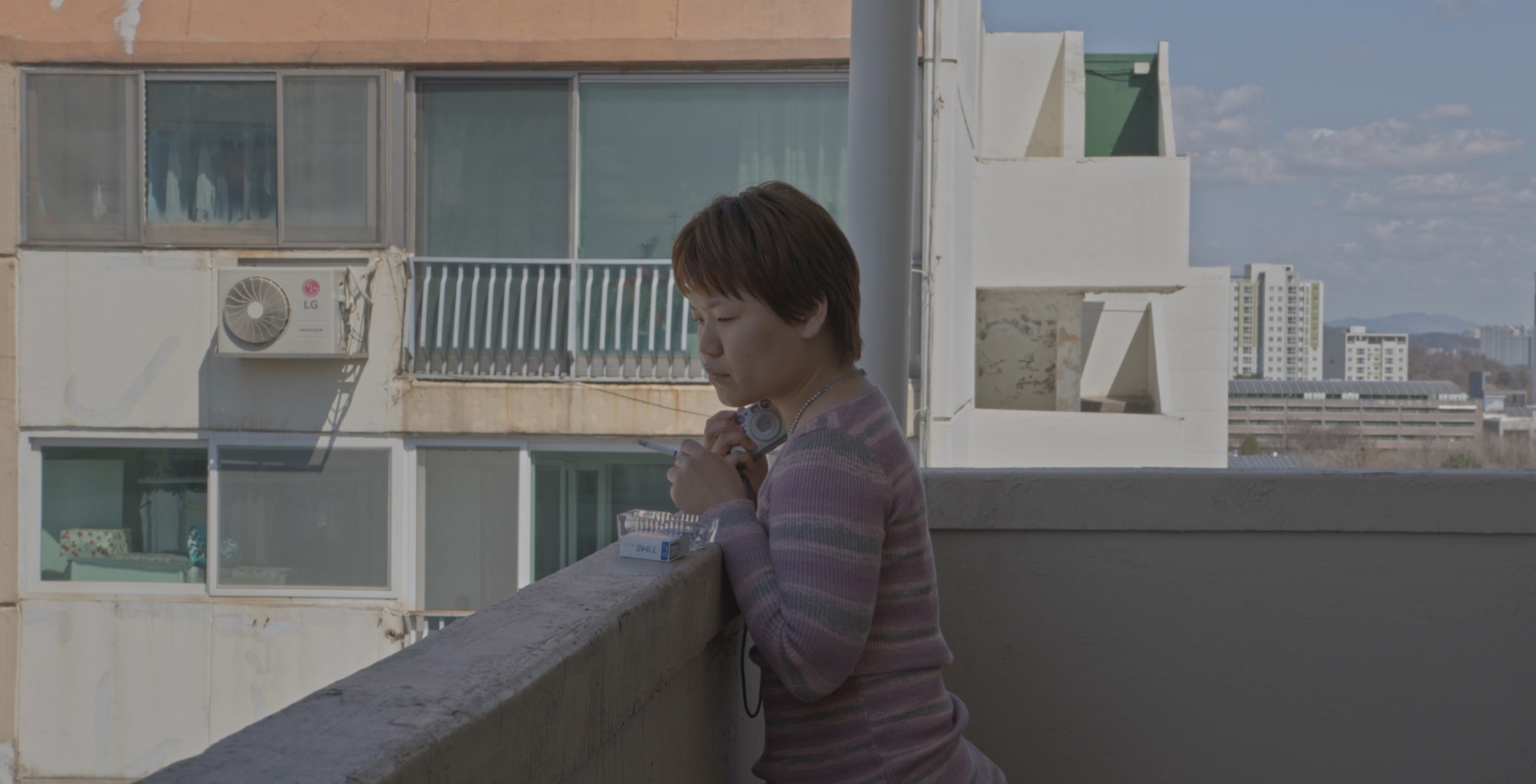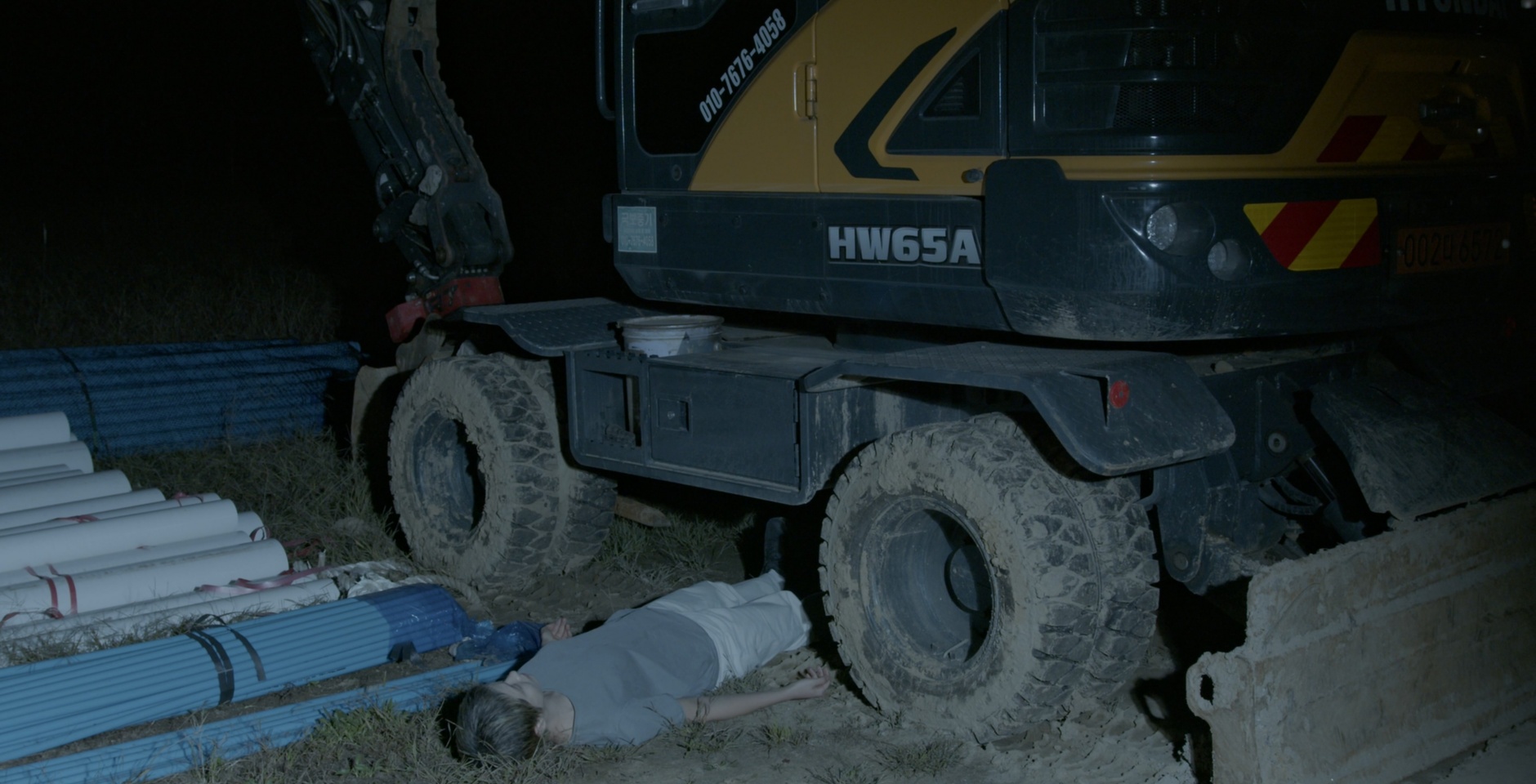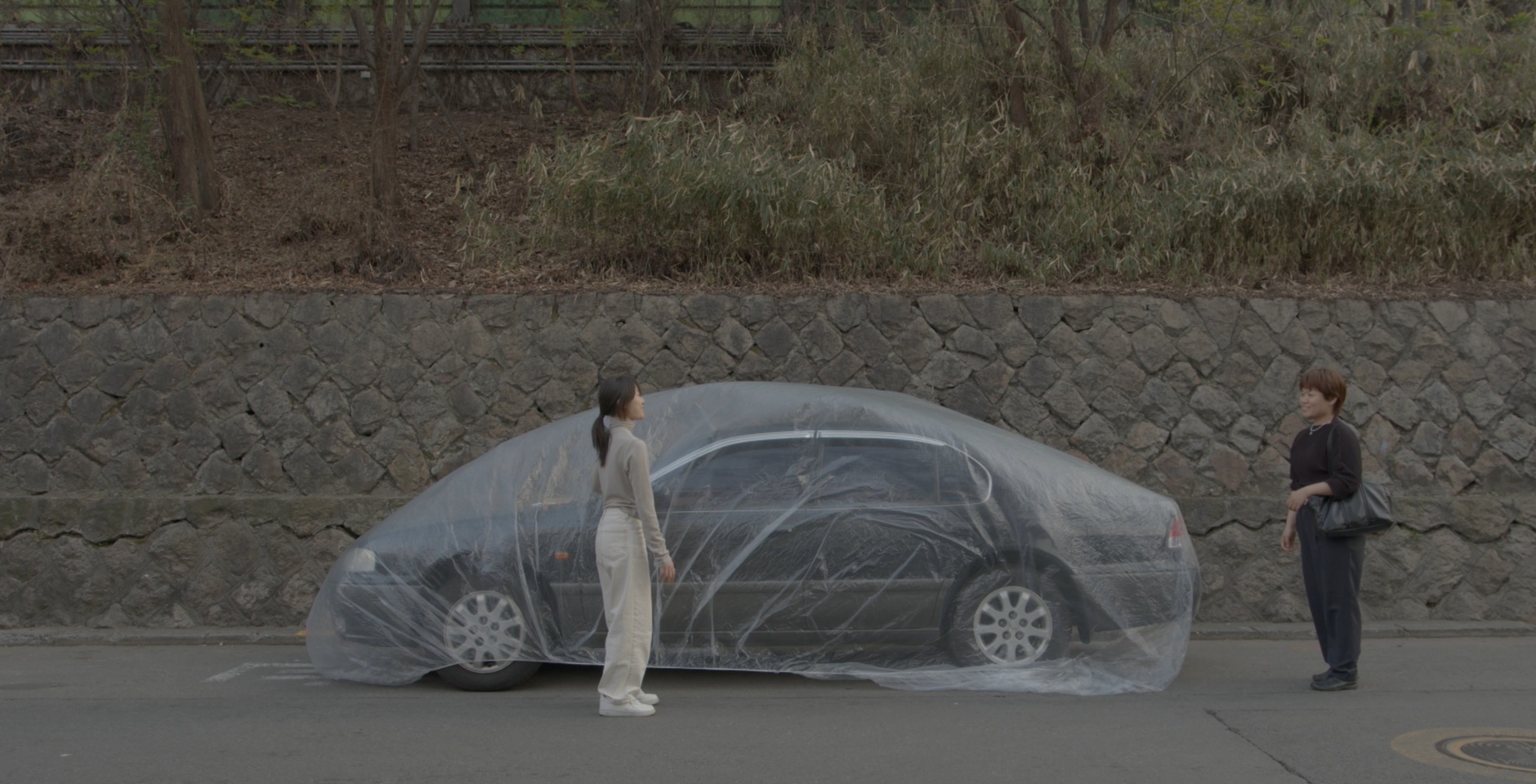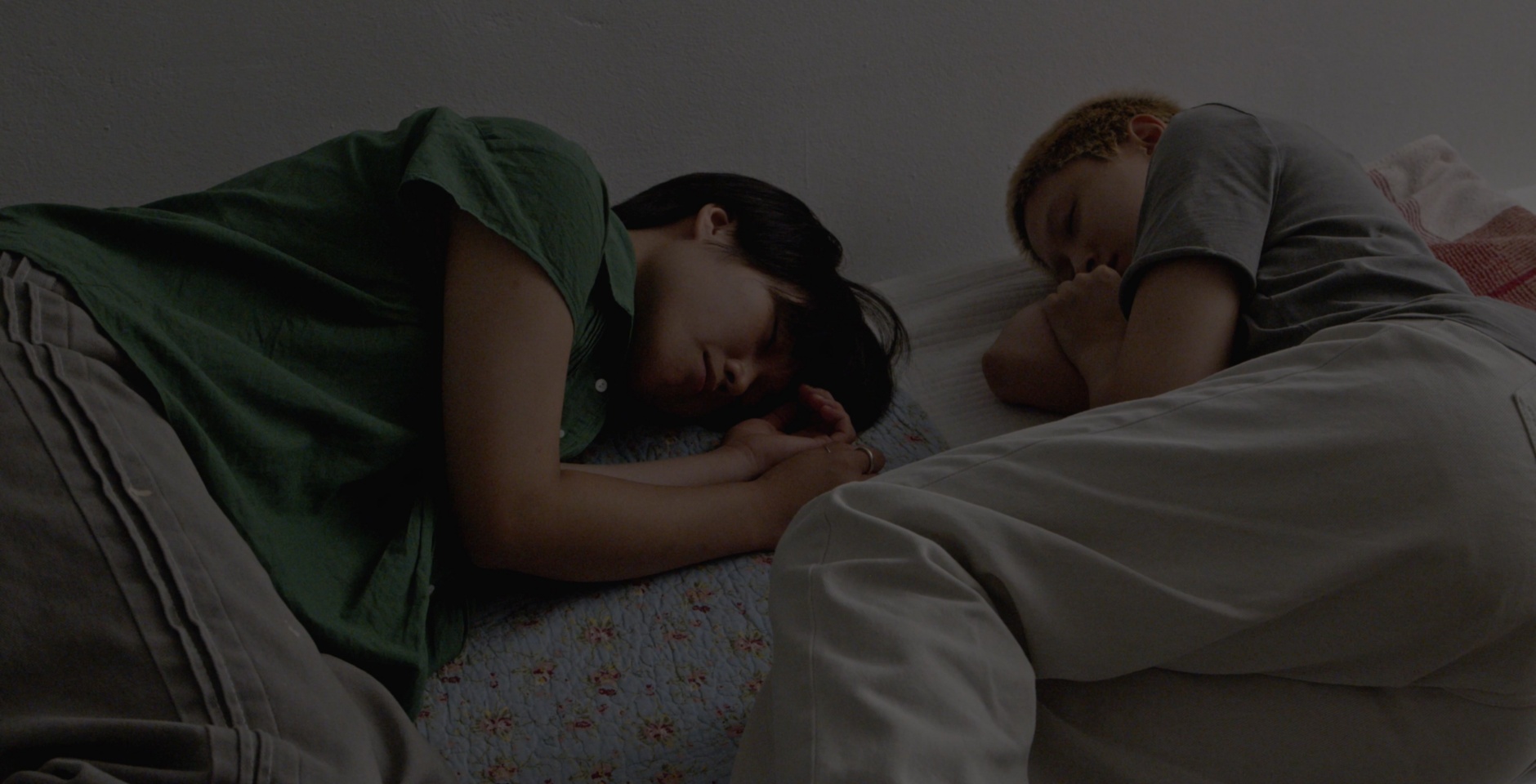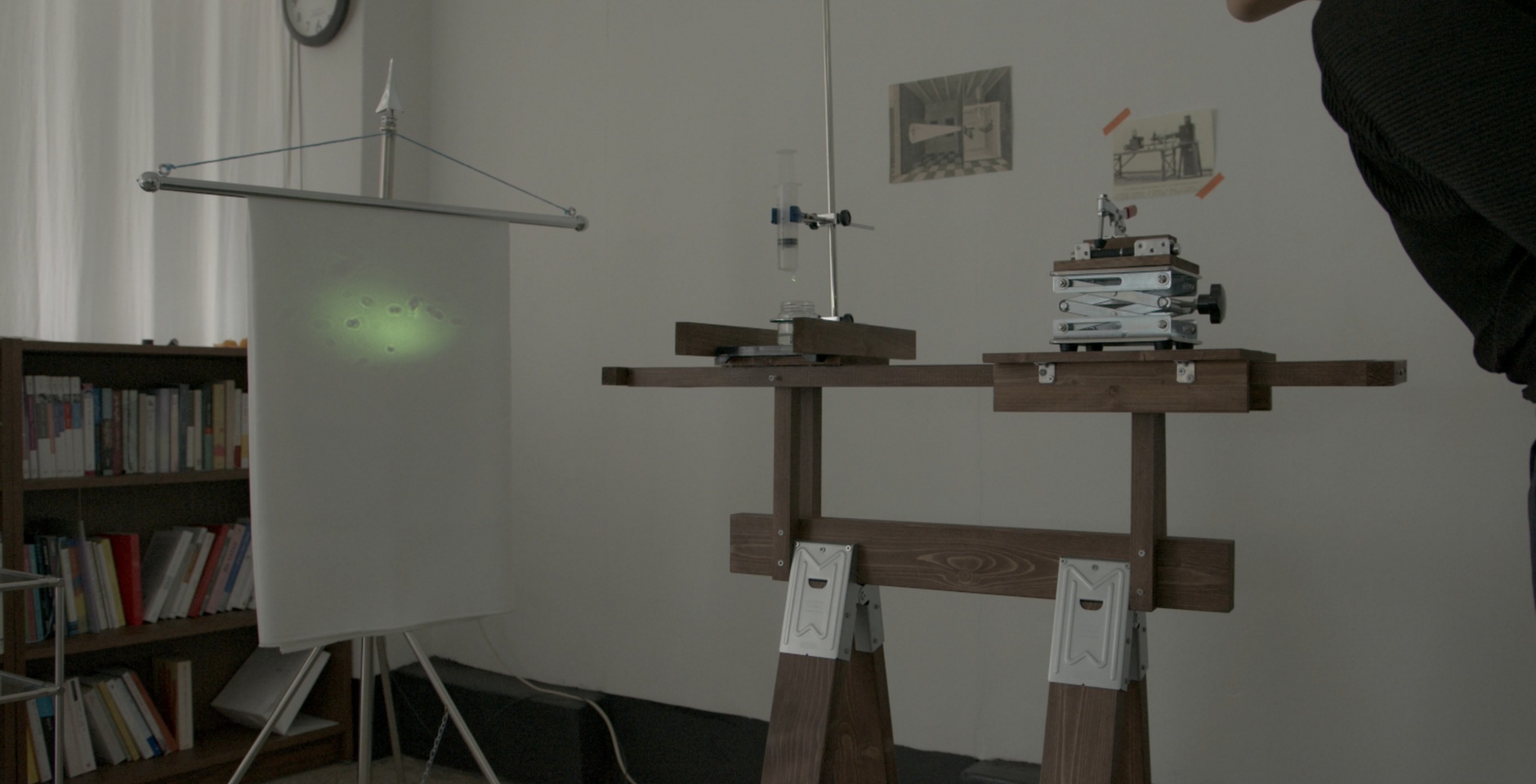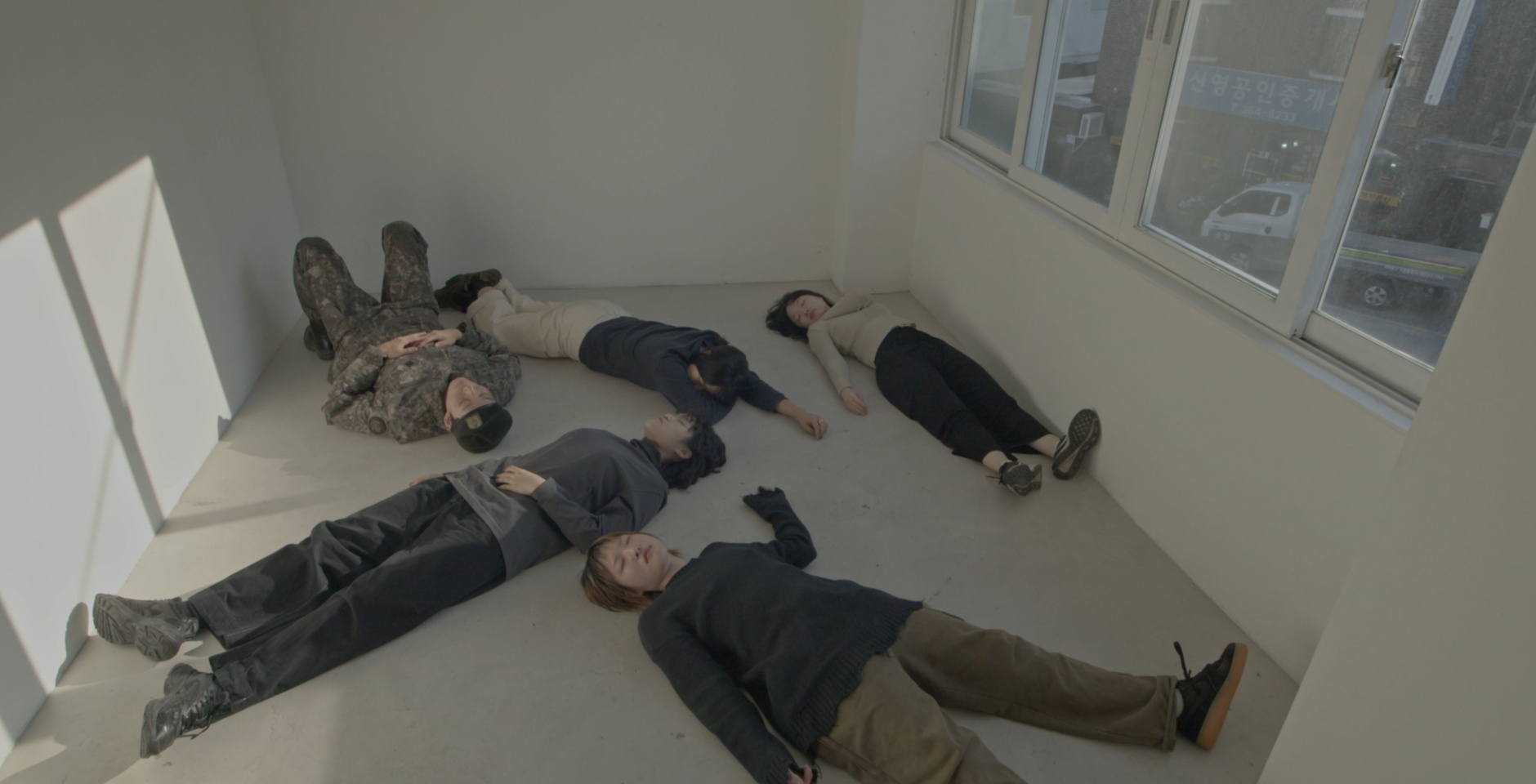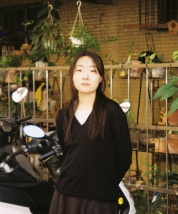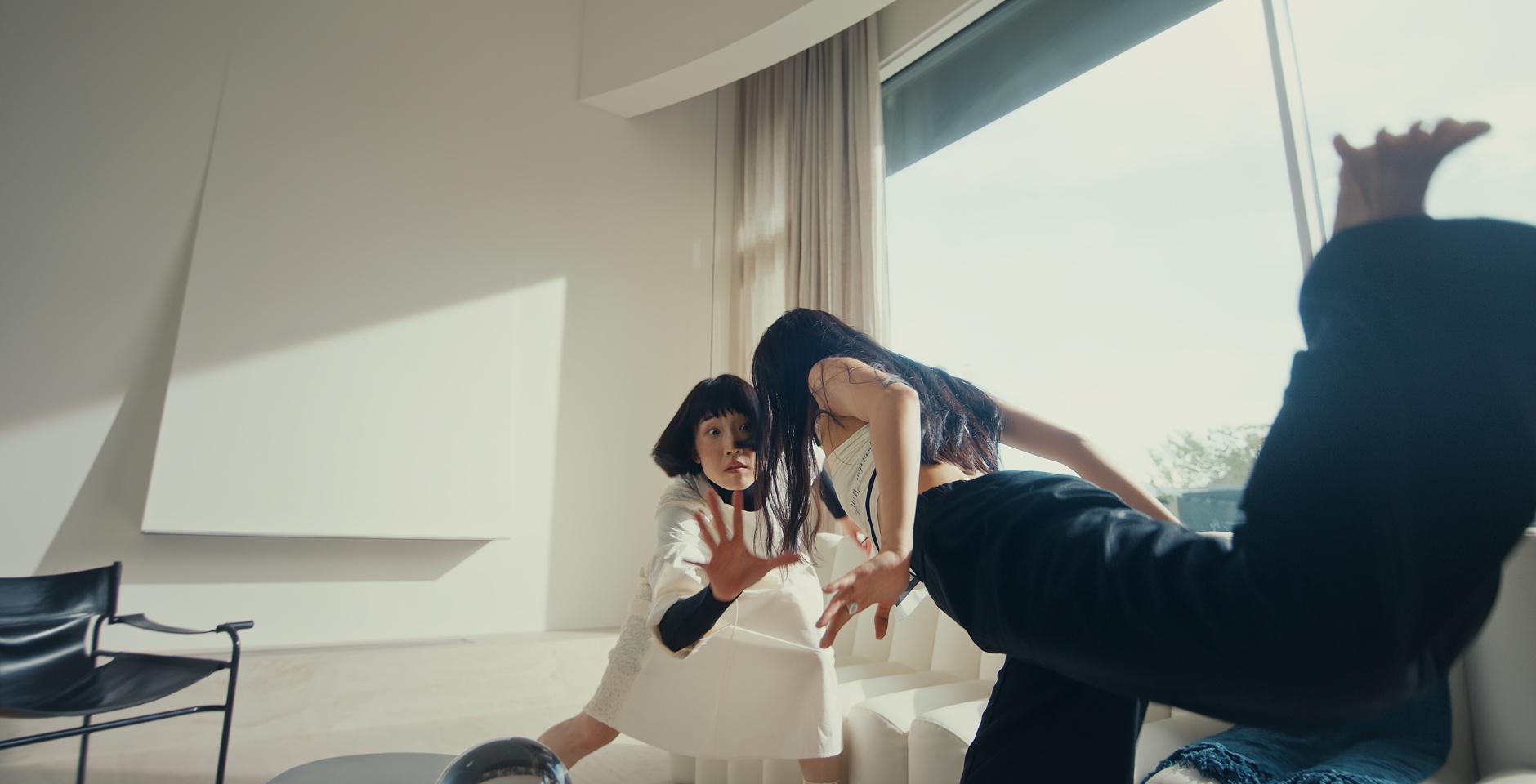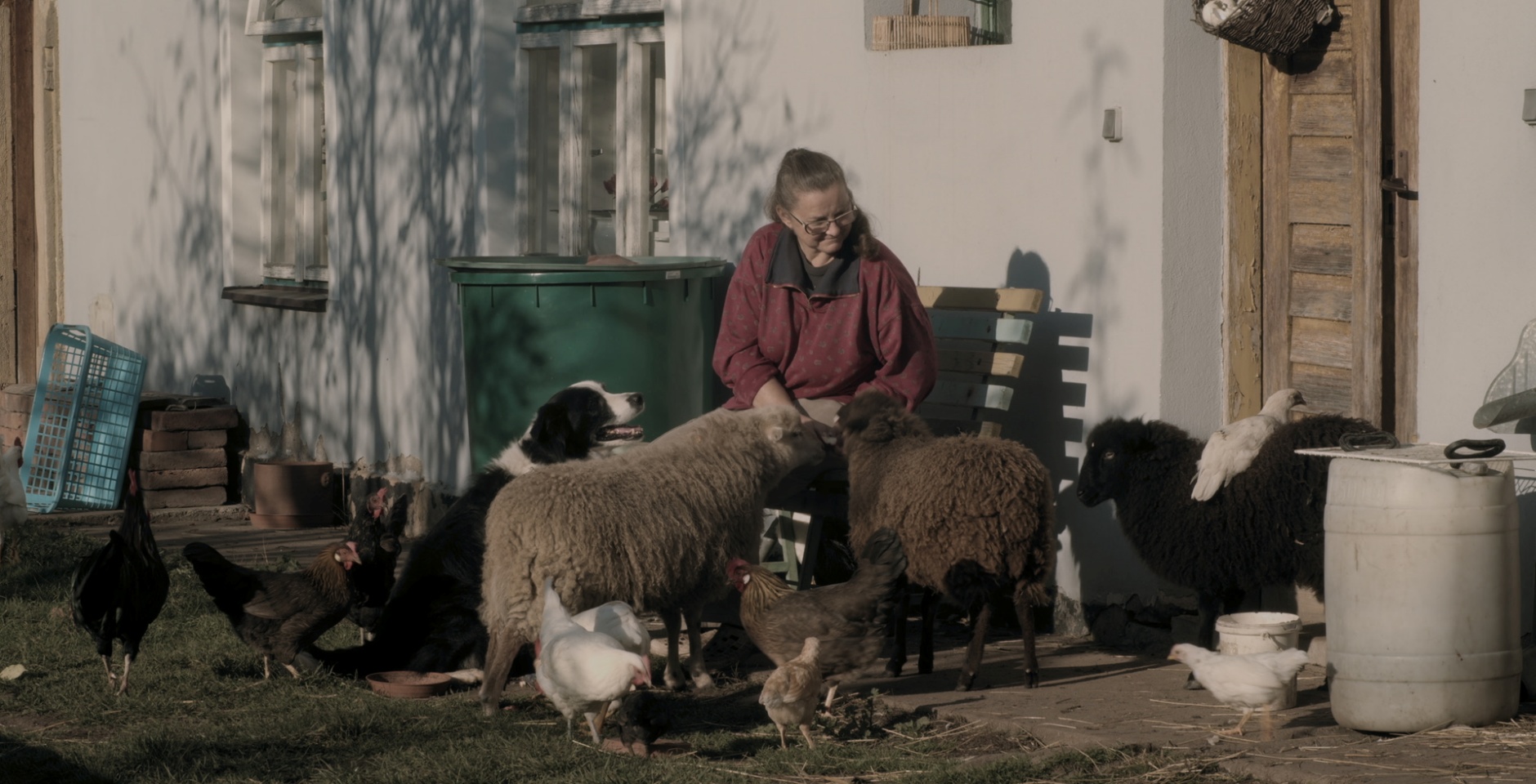The world has become more developed and affluent but why do we look injured? This film does not propose a dystopia or show the destruction of humanity. Rather, even when showing frustrating aspects of history, the director tries to embrace humans with warm energy. However, when the characters quietly try to protect their lives, the surrounding environment breaks down and becomes ruins. Based on the exploration of self-preservation and social coexistence, the film has a narrative that materializes invisible senses in the form of experiences such as sound, scientific experiments, photography, and performance. The film questions what art really is and expresses opinions about different types of beauty. It seems to be saying that all the small, beautiful moments of human life can become art, and therefore beauty is a good acquired through the cultivation of moral emotions. It shows that it is each individual who is responsible for the dark side of a society run by development and political calculations and that the only hope for that society is goodwill toward someone and the love and solidarity shown by individuals—the will for good. (Sung MOON)












